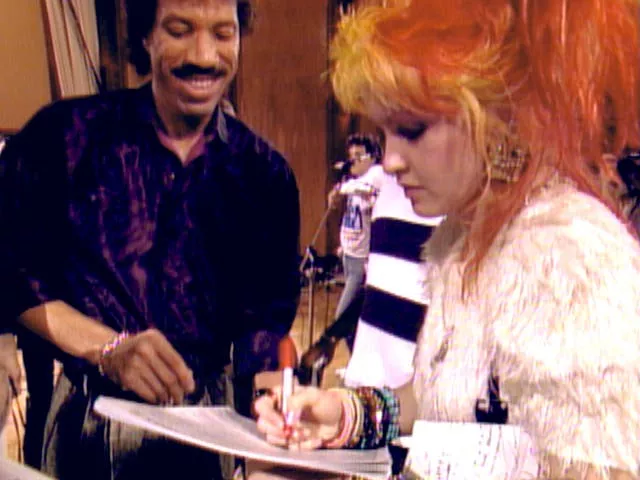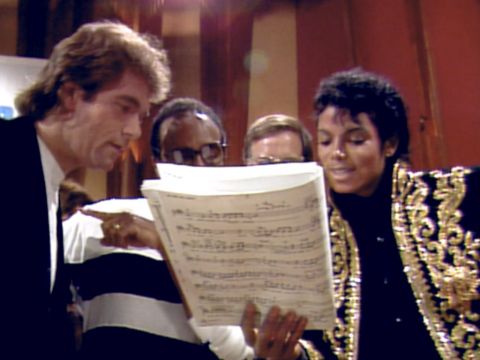Nearly 40 years ago, the biggest music stars in the world crammed into a recording studio in Los Angeles for an all-night session that they hoped might alter music history.
Fans get a chance to almost step into that recording session this month with the Netflix documentary The Greatest Night In Pop, a behind-the-scenes look at the creation of We Are The World. It starts streaming on Monday.
We Are The World was a 1985 charity single for African famine relief that included the voices of Michael Jackson, Willie Nelson, Bob Dylan, Ray Charles, Diana Ross, Stevie Wonder, Smokey Robinson, Paul Simon, Tina Turner, Dionne Warwick, Lionel Richie, Billy Joel and Bruce Springsteen.
“It’s a celebration of the power of creativity and the power of collective humanity,” says producer Julia Nottingham. “The amazing thing about the song is it’s such an inspiration for so many artists.”

The filmmakers got fresh insights with interviews with Richie, Springsteen, Robinson, Cyndi Lauper, Kenny Loggins, Dionne Warwick and Huey Lewis — speaking to them inside A&M Studios, the site of the recording in 1985.
“I knew it was important to recreate those memories by just sort of walking into that room and what that energy created for them,” said director Bao Nguyen, who was only two when the single came out.
The filmmakers married never-before-seen footage taken from four cameras that captured the USA for Africa session with audio from journalist David Breskin, offering insight into the dynamics and drama in the room that the official music video could not.
Lauper accidentally prolonged the recording session because her jangling jewellery fouled up the recording, while Prince, who was at a Mexican restaurant on the Sunset Strip, offered to do an isolated guitar solo. Sheila E confesses she felt as if she was invited to the recording session just to lure Prince in. In the end, Prince never made it, robbing the single of a Jackson-Prince double punch.
“For me, it was just important that we told a story that was honest,” said Nguyen. “It is an honest story about the night and all the things that could have gone wrong — that did go wrong — but at the end of the day, it became this beautiful family.”

The documentary anchors the effort in the activism of Harry Belafonte, who had raised the alarm about famine in Ethiopia.
The group also serenaded the legend with a spontaneous version of Belafonte’s Banana Boat.
It is revealed that Loggins suggested that Huey Lewis replace Prince in the solos, right after Jackson. “It was just one line, but my legs were literally shaking,” Lewis recalls.
There is also footage of Bob Geldof, who was a driving force behind Live Aid, inspiring the group in a speech before the session. The Live Aid concert would happen that summer.
Nottingham, the documentary producer, is not sure such a similar recording session with music superstars could ever happen these days, especially with ever-present social media and armies of assistants.
“It was very ahead of its time in terms of it being the 1980s and technology. But I would hope it would serve as an inspiration for other artists to keep trying and do these things for great causes.”







